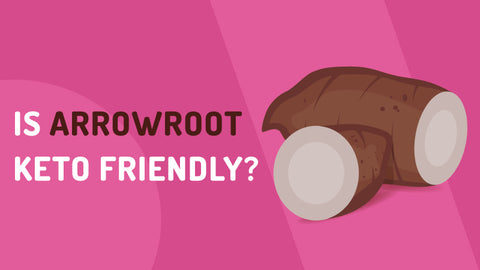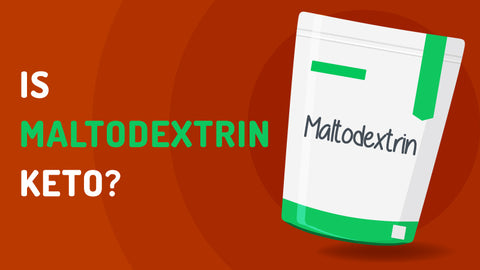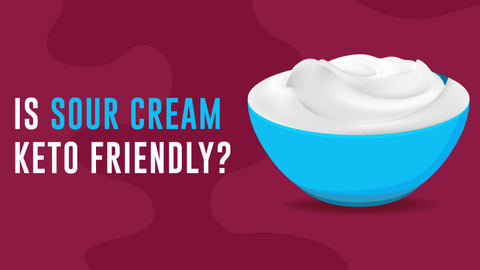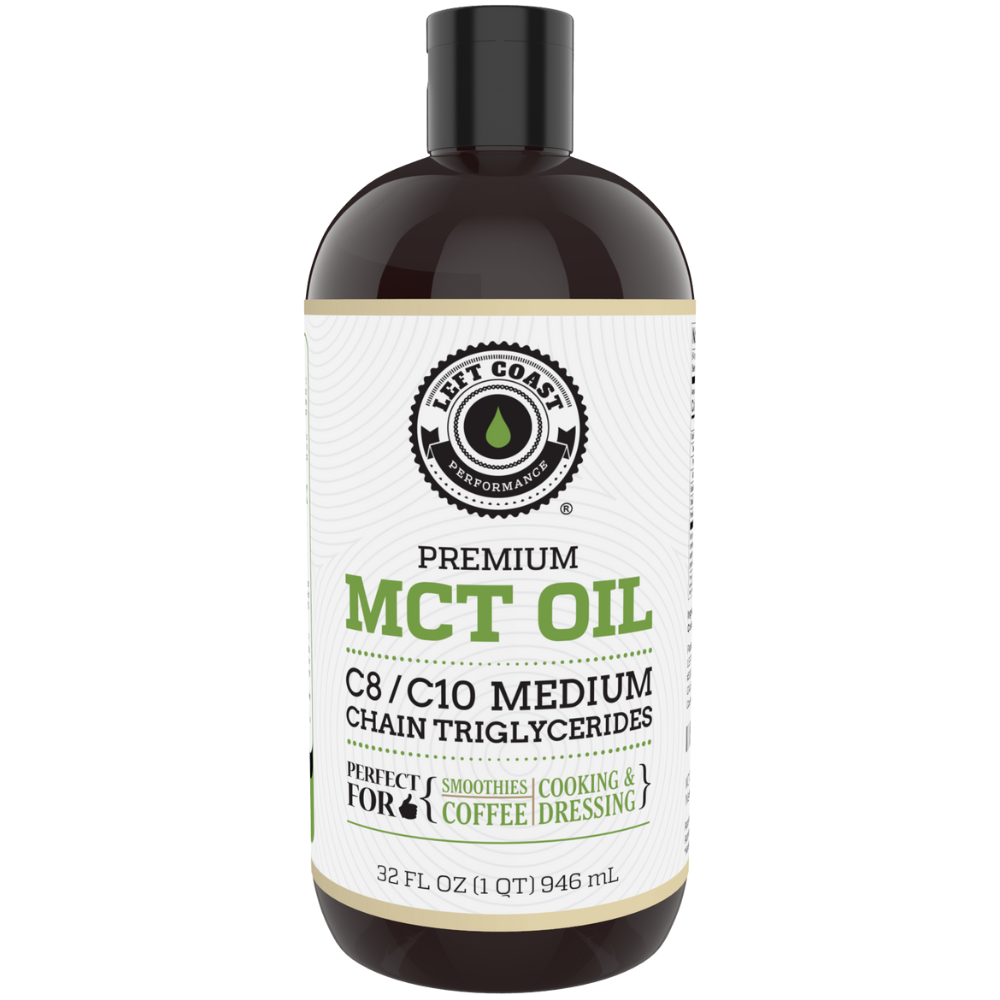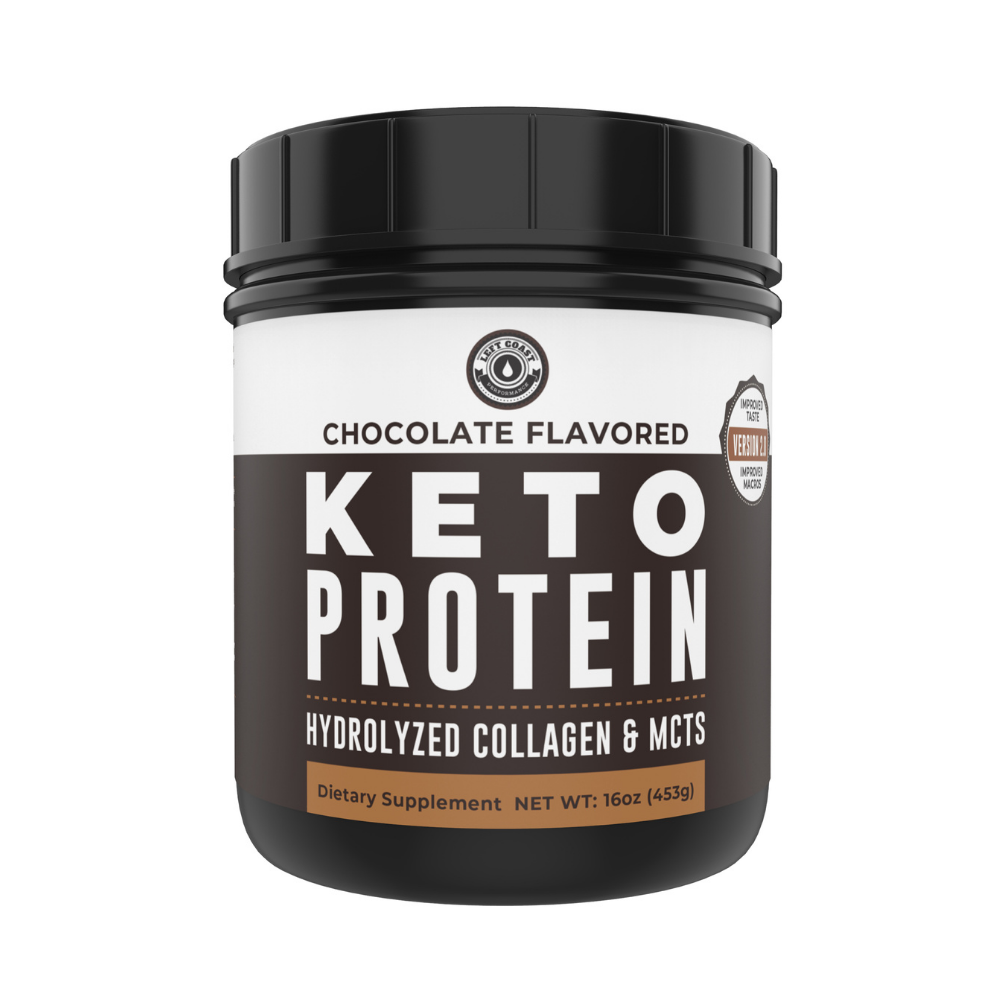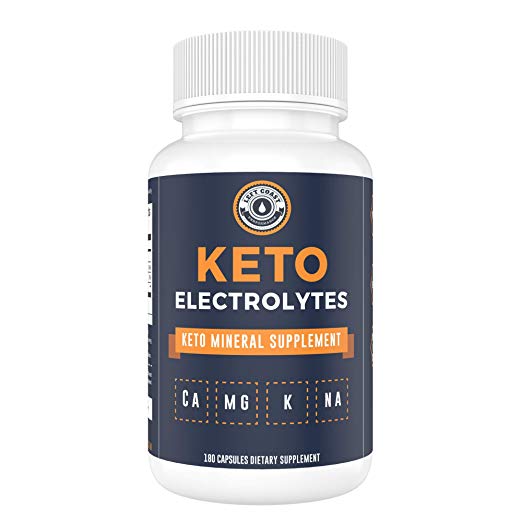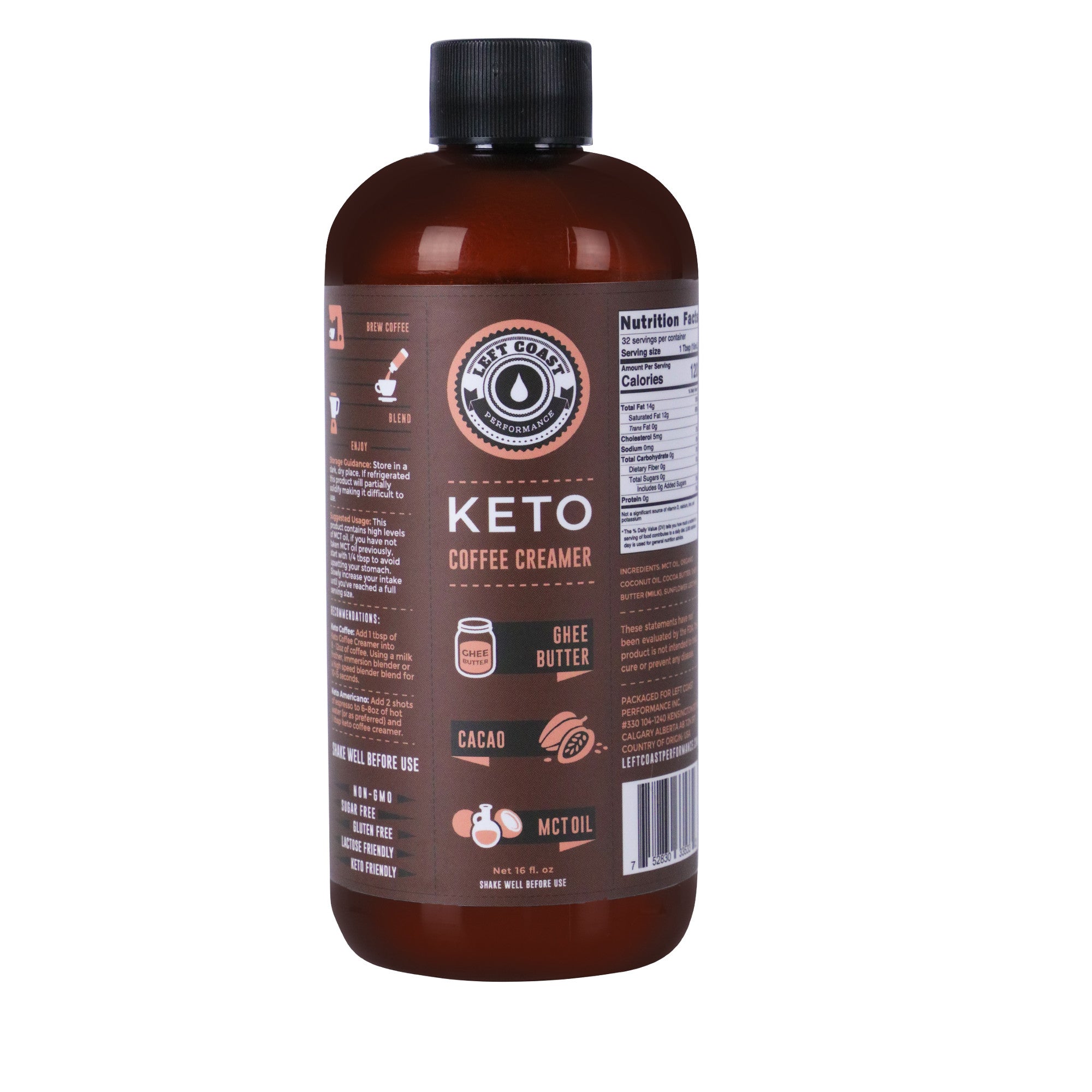Sucralose & Keto: What's the Deal Really?
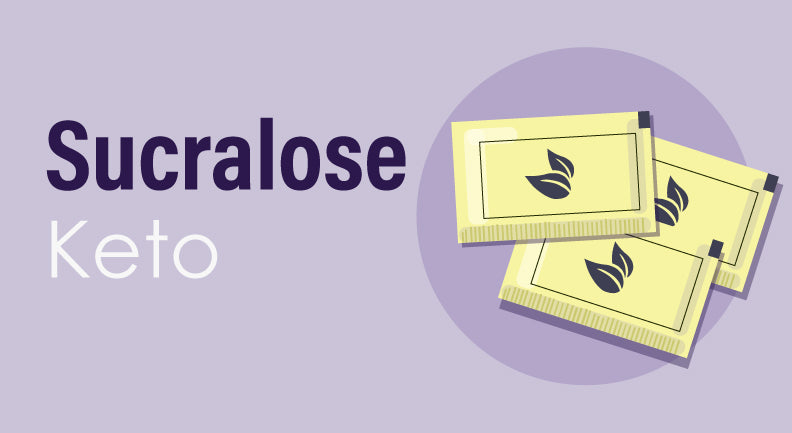
on July 31, 2019
As a follower of the ketogenic diet, you know sugar is an ingredient to be avoided at all costs. It’s a simple carb that’s not only an enemy of ketosis, it’s also been linked with inflammation, obesity and other dangerous health conditions.
Instead of sugar, keto dieters rely on artificial sweeteners and other natural flavors to produce a pleasant taste without the carbs and negative side effects. But one of those sweeteners in particular may come with more downsides than benefits: sucralose.
In this article, we’ll explain what sucralose is and some things you should know about it before using it if you’re hoping to stay in a state of ketosis.
Using Artificial Sweeteners on Keto
A sugar habit is one of the hardest habits to kick. Some experts have even likened quitting sugar to breaking a drug addiction, citing withdrawal symptoms like nausea, dizziness, fatigue, mood swings and sleep disruption, to name a few.
If you’re serious about finding lasting success on the keto diet, however, cutting out sugar is an important step you need to take. The good news is, there are a number of sugar-free alternatives that will help you enjoy the same sugar-like taste in your diet without actually reaching for the sugar bowl.
Sugar substitutes can take a few different forms. There are natural sweeteners, like Stevia, that are derived from refining naturally occurring ingredients (in Stevia’s case, the plant Stevia rebaudiana).
Then, there are artificial sweeteners. These are non-nutritive, synthetically produced food additives that offer a sweet taste while providing little to no food energy (read: calories). The FDA has approved six such artificial sweeteners for use in food: saccharin, aspartame, acesulfame potassium (Ace-K), sucralose, neotame and advantame.
Finally, there are sugar alcohols. These are organic compounds derived from sugar that may occur naturally or may be commercially produced. Some common examples of sugar alcohols include erythritol, xylitol, and sorbitol. Sugar alcohols have less of an impact on blood sugar levels than table sugar.
The right type of sugar substitute for you depends on a few factors: your taste preferences, the food or recipe you’ll be using it for, and your specific diet needs and goals.
What is Sucralose?
Sucralose is one of the calorie-free artificial sweeteners mentioned above. You probably know it better by its brand name, Splenda.
Sucralose is what’s known as a “high-intensity sweetener” because it only takes a tiny fraction of it to produce the same amount of sweetness as regular sugar. In this case, a single serving of sucralose is about 600 times sweeter than the same amount of regular sugar. Many people report that sucralose doesn’t have the bitter aftertaste that accompanies some other artificial sweeteners.
Can Sucralose Knock You Out of Ketosis?
Sucralose sounds great so far, right? It can sweeten your food and it’s approved by the FDA--what’s not to love?
But there are some things to consider when it comes to sucralose and the keto diet, and it’s best to arm yourself with as much knowledge as possible so you can make the right choices for your particular situation.
There’s a lot of controversy over whether sucralose is in fact keto-friendly. For starters, recent reports show that it might not actually pass through the body completely unmetabolised like other sugar substitutes. This means that it may actually raise blood sugar levels.
A report published in the Journal of Toxicology and Environmental Health noted that some sucralose is metabolised by the body upon consumption and it may alter glucose and insulin levels--not good for those looking to maintain ketosis. The researchers recommended further studies to learn more about sucralose’s exact effects.
Then there’s the question of what it’s mixed with. The most well-known commercially available form of sucralose is Splenda. But in addition to sucralose, Splenda also contains the bulking ingredients dextrose and maltodextrin which are not low carb ingredients.
These bulking agents are inconsequential to people who are merely counting calories, but for those who are counting carbs, they do make a difference. Each packet of Splenda contains about 1 gram of carbohydrates from these bulking agents. So, consuming Splenda can have an impact on your macros, which is important to know if you’re carefully watching every carb in your diet.
Finally, there’s also some debate about the safety of baking with sucralose. While the FDA maintains that it’s safe to use as a sugar substitute in baked goods, recent studies have challenged this position. One report found that at high temperatures, sucralose generates chloropropanols, a potentially toxic substance. Again, experts call for further research on this.
Avoid Sweet Things Whenever Possible (Even When It’s Artificial)
While artificial and natural sweeteners are a viable option for those times when you just can’t resist the urge to snack on something sweet, your best bet for long-term keto success is to work toward reducing the amount of sweet foods you eat in general--artificial or not.
Foods that feel indulgent, like sweets, trigger a chemical response in our brains. Research suggests that eating these foods prompts us to want more and more of them to feel satisfied (remember that comparison to drug addiction from earlier?).
The jury is still out on how artificial sweeteners compare to regular sugar in this regard, but anecdotal evidence suggests that cutting back on sweet foods in general can help you stave off cravings for those same foods in the future.
Instead of reaching for something sweet, try to get in the habit of turning instead to protein and healthy fats to curb your cravings. Eggs, cheese and nuts are just a few of the foods that may help your brain produce the same feel-good hormones as sugar, but without the ill effects.
3 Alternative Sweeteners Other than Sucralose
Stevia
Made from the leaves of a plant by the same name, Stevia has been used in one form or another to sweeten foods for hundreds of years. Stevia falls into an FDA classification known as ‘GRAS,’ which stands for Generally Recognized as Safe. This means the sweetening agents in Stevia, steviol glycosides, can be used as food additives without the need for FDA approval.
Stevia is about 200 times sweeter than regular sugar. It’s a go-to sugar alternative for many people because it’s not metabolised by the body and thus, does not contain any calories. It also has no measurable effect on blood glucose or insulin levels, making it a safe choice for those looking to maintain ketosis. Some studies even suggest that Stevia may help lower blood sugar in people with type 2 diabetes.
Stevia is most commonly used in powdered form, although it’s available in liquid form as well. It can be used to sweeten coffee, tea, and other beverages, sprinkled into smoothies or over yogurt, or used in baking. Since it’s much sweeter than plain sugar, if you’re baking with Stevia you’ll need to reduce the measurements and add a bulking agent like yogurt or egg whites to make up for the difference in volume.
Erythritol
Erythritol is a sugar alcohol that takes a granular form similar to sugar. Unlike other sugar alcohols, which pass through the digestive system, erythritol is absorbed directly into the bloodstream and excreted through urine. Because of this, it doesn’t typically cause the same digestive discomfort that can accompany other sugar alcohols.
Erythritol has a negligible number of calories (0.2 calories per gram) and is slightly less sweet than regular sugar by volume. It has a glycemic index of zero which means it doesn’t spike blood sugar, making it a great sugar alternative for keto followers.
Erythritol comes with another added benefit that dentists in particular will enjoy: unlike sugar and even some artificial sweeteners, sugar alcohols like erythritol do not react with plaque bacteria in the mouth and thus, don’t contribute to cavities.
Monk Fruit Sweetener
For those that prefer a truly natural option, there’s monk fruit sweetener. Also called monk fruit extract, this sweetener is derived from the monk fruit, a small, round fruit native to southeast Asia.
Monk fruit sweetener is created by peeling the fruit and removing its seeds, crushing the fruit to collect its juice, and allowing the juice to dry which results in a concentrated powder.
Like other fruits, monk fruit contains glucose and fructose. But unlike its cousins in the fruit family, that’s not where its sweetness comes from. Monk fruit’s sweet taste is derived from antioxidants called mogrosides. During processing, these mogrosides are separated from the fruit’s juice--including the glucose and fructose. The resulting sweetener contains no calories and no carbs.
You can use monk fruit sweetener pretty much anywhere you’d use regular sugar, although the monk fruit to sugar ratio will vary depending which brand and concentration you buy. Be sure to check the label carefully, as some sweeteners with monk fruit also contain other sugars that can knock you out of ketosis.
The bottom line is, only you can determine the right sugar substitute or combination of them to use in your keto journey. By educating yourself on your options, you’ll be better equipped to make positive diet choices that won’t put your state of ketosis in danger.
About Left Coast Performance
Left Coast Performance is an online resource for keto nutrition information and high quality products. On our blog, you’ll find keto-friendly versions of your favorite recipes, low-carb lifestyle tips, frequently asked questions and more.
We also carry a wide selection of premium, clean label keto products like bone broth, collagen and MCT oil. We only stock the best; all Left Coast Performance products are free of artificial colors, flavors and fillers. All customers enjoy free shipping and a no risk money back guarantee. Learn more about Left Coast Performance and shop now at www.leftcoastperformance.com.


